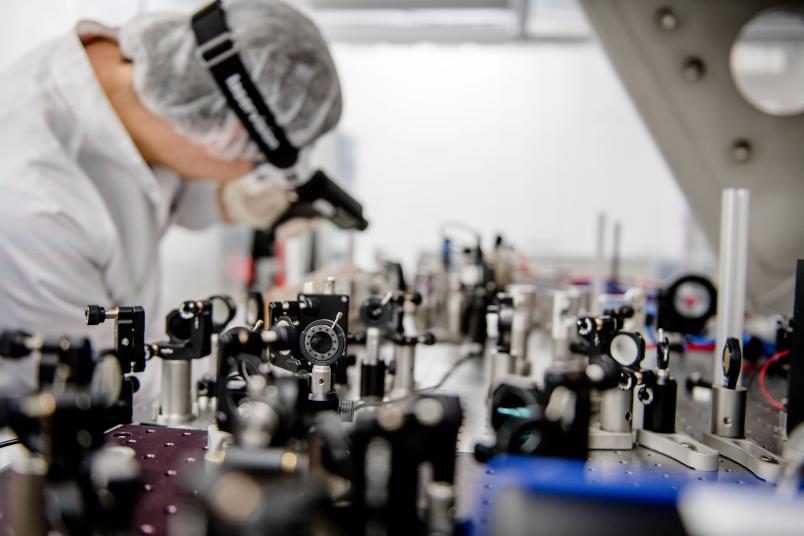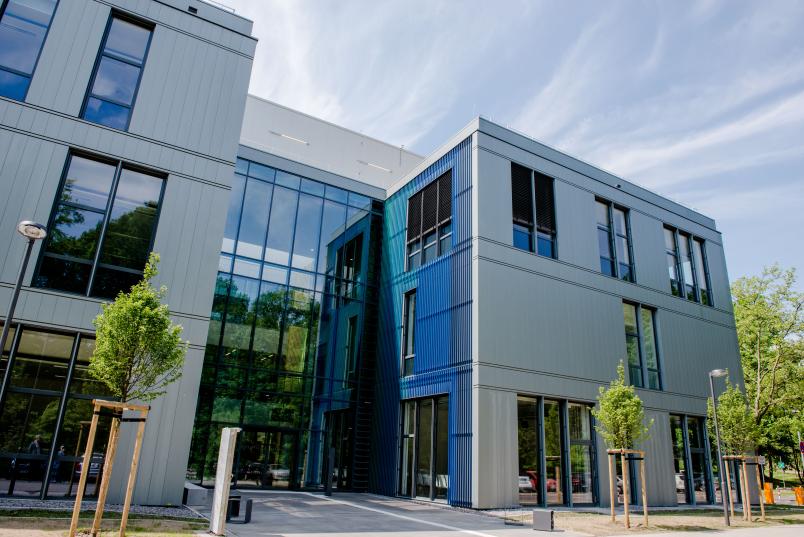Resolv Lift off into the future
The Resolv cluster of excellence has successfully completed its first funding period and intends to aim even higher in the future. Next stop: space.
The balance sheet for the first seven years in the Ruhr Explores Solvation (Resolv) Cluster of Excellence is outstanding. Over 960 publications in high-ranking journals, including 225 cooperative journals, and around 100 awards for participating scientists from the various partner institutions, including 14 grants from the European Research Council (ERC) and three Leibniz Prizes, are evidence of this.
For two full days, 180 participants shared the results of the first funding period in Dortmund and developed visions of the future together with international guests.
An excellent start to the journey
“The Solvation Science research ecosystem established by Resolv is now visible in Europe and worldwide,” says spokesperson Professor Martina Havenith. Advances in spectroscopy, microscopy, synthetic methodology, and computer simulations herald a new era in the description of the role of solvents in chemical reactions.
Between 2012 and 2018, Resolv has built up new, permanent structures:
- the 3,000-square-metre research building Zemos (Centre for Molecular Spectroscopy and Simulation of Solvent-Driven Processes) is home to the Cluster of Excellence;
- nine new professorships in Solvation Science were created;
- 13 out of 14 early career researchers have now been awarded a professorship;
- 145 students obtained their doctorate at the graduate school;
- a family-friendly environment has been created for all participating researchers.
Next stop: space
The symposium in Dortmund was also attended by guests who have worked with Nasa or with the European Rosetta mission. The Bochum-Dortmund Cluster of Excellence is aiming high in the second funding phase. “Chemistry in extreme conditions, such as low temperatures in space or high pressure in the deep sea, is a central theme of Resolv,” says Havenith. She and Professor Dominik Marx have recently discovered how acids react with water molecules at temperatures close to absolute zero. “The results are crucial for understanding how more complex chemical molecules have formed in space,” says Havenith.
Over the next seven years, the 200 chemists, physicists and engineers cooperating within Resolv will research chemical processes beyond normal conditions, thermal equilibria and homogeneous phases.
Greater transfer
In the future, the cluster intends to develop new research-based concepts for the industry – for example in the fields of energy conversion and storage or for the development of smart sensors. In order to develop fast-tracks from excellent science to usable products, Havenith, together with NRW Minister for Economic Affairs Professor Andreas Pinkwart, moderates the Forum “From Idea to Product” at the Ruhr Conference (Ruhrkonferenz).


